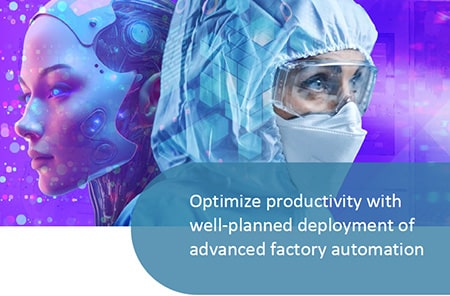Avoid the costs of relearning from failures by using prior process and quality knowledge in real-time.
Transcript
So, now let me wrap up by asking this question. What can we learn from Semiconductor Manufacturing? Let’s focus in on Reducing Human Error, which is something that both Pharma and Semiconductor Manufacturing wants to do. So I came across a very interesting post from last year which kind of pointed out that, you know, error rates by humans tend to accumulate until the boss shouts at you. Then they come down. The trouble with that is that it’s not sustainable. There’s no real learning that’s involved there. It’s just avoidance of pain.
So we can look at SPC charts as an important output from processes and as an important advance alert that something will fail unless we take action. Most of the time in traditional manufacturing, those action plans happen offline, after the fact, by a group of experts contemplating how to do things better.
What would happen (and as is happening in semiconductor manufacturing today) if that action plan was in real time in time to save that batch, to change its trajectory, so that you didn’t have to contemplate a failure, but you could grow and learn and adapt in real time with the process. Let me show you how that works. And in the leading semiconductor manufacturing plants, this is being implemented now.
It’s an offering from SmartFactory, which is the suite of software made by Applied Materials, a Knowledge Advisor. Here’s how it works. Let’s imagine we have a manufacturing process going from raw materials to final products across many different unit operations and taking, you know, some number of days, probably.
We have a group of people that’s responsible for that, and they’re monitoring the SPC outputs. Those outputs are generated not only from online instruments, but also from offline measurements that go to a Knowledge Advisor, which also accumulates data from those instruments. But it also has access to prior failure resolution knowledge from similar processes or even this process, and an expert skills and location database.
So, an SPC chart shows up to an operator with an indication that we’re out of trend. What’s the next step? Well, that engine provides them a form for a clarifying interview, where the operator is asked to add any missing information that might not be captured by the current instrumentation. What’s this valve position on this? What was the protocol followed? Things of that sort.
And then immediately provides a corrective action plan based on the information it has here, and based on the prior experience with those situations. Well, if that solves the problem, fine, we’re done. But if it doesn’t, what are the related problems, and who in our pool of experts is likely to be able to assist in this situation? That expert is brought online and provides additional actions if that solves the problem.
Fine, but if it doesn’t, we have an iterative process here to solve that. So we’ve got access to the explicit knowledge artifacts, and we’ve integrated it with tacit knowledge from human interaction. If that solves the problem, great, we’ll record the corrective action plan and adjust the SOPs.
Are we done yet? No. Why not? Because we need to capture the metrics. How quickly was this problem solved? What alternatives were tried? Which related processes were informative? So on.
And very important, we need to alert the rest of the team, a new teachable moment just happened, and somebody learned from it, and here’s what you can learn from it. So as I said, that is the Knowledge Advisor being implemented in Semiconductor Manufacturing today, and you can see that it’s an important way of leveraging not only what’s going on in terms of the instrumentation and SPC outputs, but integrating that with expert advice for the tacit knowledge component.
Thank you very much.

